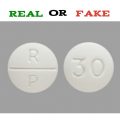Drug overdoses can be accidental or intentional. They occur when a person takes more than the medically recommended dose. However, some people may be more sensitive to certain medications, so the low (more dangerous) end of a drug may be toxic for them; a dose that is still within the range of acceptable medical use may be too much for their bodies to handle. Illicit drugs, used to get high, may be taken in overdose amounts when a person’s metabolism cannot detoxify the drug fast enough to avoid unintended side effects.
Exposure to chemicals, plants, and other toxic substances that can cause harm are called poisonings. The higher the dose or the longer the exposure, the worse the poisoning. Two examples are carbon monoxide poisoning and mushroom poisoning.
Drug Overdose Causes
The cause of a drug overdose is either by accidental overuse or by intentional misuse. Accidental overdoses result from either a young child or an adult with impaired mental abilities swallowing a medication left within their grasp. An adult (especially seniors or people taking many medications) can mistakenly ingest the incorrect medication or take the wrong dose of a medication. Purposeful overdoses are for a desired effect, either to get high or to harm oneself.
How Long Does It Take To Recover From An Overdose?
There are several factors that determine how long it takes before you recover from an overdose this includes:
Type of Drug: Different types of drugs produce varying rates of overdose symptoms. Simply inhaling Carfentanil can cause overdose quickly. This explains why this drug is so powerful and poses a significant threat to first responders and law enforcement personnel who touch it by accident.
Dosage: One of the reasons why most Mexican oxy (oxycodone) cause overdoses is because they are laced with fentanyl which is about 100 times stronger than morphine and there is a small margin between the therapeutic dose and toxic dose. Therefore, it is very easy to overdose on the drug. Fentanyl acts very quickly inside the body and this fast action can cause you to stop breathing much quicker than other drugs and therefore has a much greater chance of overdose.
History of misuse or addiction: Intentionally misusing prescription drugs or using illicit drugs can put you at risk of a drug overdose, particularly if it happens often or if you become addicted. This risk increases if you use multiple drugs, mix different drugs, or use them with alcohol.
Mode of administration of the drug: The mode of administration of a drug can also determine how quickly it causes overdose. Opiates can be administered intravenously (IV), topically, inhaled, intramuscularly (IM), and orally. Following intravenous administration, the peak effects of the opiate are reached within 5 to 10 minutes but may take up to 90 minutes when administered orally. Following nasal insufflation, drugs Like heroin and butorphanol can reach peak levels within 10 to 15 minutes and about 30 to 45 minutes following intramuscular injection. Fentanyl which is the only available topical analgesic agent often takes 2 to 4 hours to reach peak levels.
Overdose Symptoms of common Drugs
Marijuana
A fatal marijuana overdose is rare but possible. Doctors haven’t yet been able to determine how much marijuana it takes to overdose, so it is best to stay aware of the signs and symptoms. Symptoms of a marijuana overdose are:
- Hallucination
- Extreme paranoia
- Rapid heart rate
- Vomiting
- Mental confusion
- Panic attacks
Alcohol
An alcohol overdose is what’s known as alcohol poisoning. Binge drinking most often results in alcohol poisoning. Binge drinking involves the consumption of four drinks for women or five drinks for men within two hours. Alcohol overdose depends greatly on gender as well as body weight and tolerance. Symptoms of alcohol poisoning include:
- Difficulty breathing
- Vomiting
- Seizures
- Confusion
- Blue-tinged or pale skin
- Low body temperature (hypothermia)
- Loss of consciousness
Benzodiazepines (Benzos)
Benzos are a kind of prescription drug used medically as tranquilizers. Usually taken for their calming effects, examples of benzos are Xanax®, Ambien®, and Valium®. Benzos act as central nervous system depressants that slow the activity in the brain. This sedating effect is responsible for many of the symptoms seen in benzo overdoses. Symptoms of an overdose are:
- Blurred or double vision
- Disorientation and confusion
- Weakness
- Tremors
- Stupor
- Coma
Heroin
Heroin is an opioid drug with a high rate of addiction and overdose. Heroin is often injected, making overdose even more common. One of the most dangerous things about heroin is that it suppresses the respiratory system. While sleeping under normal circumstances, the body self-regulates breathing. During an opioid overdose, a person suffers from asphyxia (lack of oxygen) and respiratory depression (lack of breathing). This commonly leads to death during an opioid overdose. Heroin also may be laced with other drugs without the user’s knowledge. One drug which is commonly added to heroin is fentanyl, a synthetic opioid that is 50 times stronger than heroin. Other signs and symptoms of a heroin overdose include:
- Passing out
- Slow and shallow breathing
- Delirium
- Stomach or intestinal spasms
- Pinpoint pupils
- Weak pulse
Meth
The purity of the drug greatly affects how long it takes to overdose on meth or how long the overdose will last. A meth overdose can be acute, which means side effects are experienced immediately after taking the drug. Long-lasting health effects of meth are referred to as a chronic meth overdose. Symptoms of a meth overdose are:
- Wide pupils
- Convulsions
- Delusional behavior
- Paranoia
- Chest pain
- Labored or difficult breathing
- Seizures
- Hyperthermia (elevated body temperature)
Cocaine
Cocaine overdose depends on the amount of cocaine taken at once and whether it was injected, smoked, or snorted. Like alcohol, cocaine is often consumed in binges, which make overdose more likely. Even more dangerous, some people inject a mix of cocaine and heroin called a speedball. This combination brings on an overdose much quicker. Symptoms of a cocaine overdose include:
- Seizures
- Hallucinations
- Vomiting
- Irregular heartbeat
- Hyperthermia (elevated body temperature)
- Extreme anxiety or confusion
Opioids
Opioids include prescription medications or illegally produced drugs. Abusing prescription pills like oxycodone and hydrocodone commonly results in overdose. For synthetic, illegal opioids like fentanyl or tramadol, overdoses are unpredictable. There is no consistency or standard used when drugs are illegally manufactured, and each dose may be a different strength. Symptoms common to prescription medication or synthetic opioids are:
- Constricted pupils
- Passing out
- Slowed or stopped breathing
- Pale or clammy face
- Vomiting
What Should You Do if You Witness an Overdose?
If you see someone suffering an overdose, consider it a medical emergency that requires immediate treatment. Call 911 or your country’s emergency line right away, no matter how severe their symptoms are. Symptoms of drug overdoses can last from a few minutes to several hours, but again, all overdoses can be fatal. When first responders arrive or you to the hospital, be ready with as much information as you can provide. Explain, if you can: SEE: Full List of Opioids Strongest To Weakest






